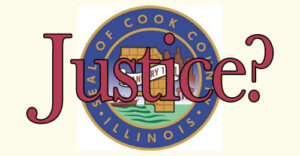 Does the Cook County Board Really Want a Level Playing Field?
Does the Cook County Board Really Want a Level Playing Field?
UPDATE: The vote on this proposed ordinance is scheduled to take place December 15, 2020. Act now.
I have been training real estate agents, landlord groups, and real estate attorneys about Chicago Residential Landlord and Tenant Ordinance (CRLTO) compliance for over 10 years. During almost every one of my training sessions, there is a moment where one of the participants in the room get a wide-eyed look on their face as they come to realize that they have been violating the CRLTO on behalf of themselves or their clients. At that point, panic kicks in. Their hand shoots up. They ask the same question every time: “if I have violated the ordinance, what can I do now?” And while I can (and do) offer some suggestions on how to deal with the situation, the fact is this: the CRLTO does not offer any way for a landlord to get back into compliance after violating the law. This is true of the CRLTO and is also true of the proposed Cook County Residential Tenant and Landlord Ordinance (CCRTLO). And I have one simple question: WHY?
Yesterday, Tenant Rights Advocates and the Cook County Board of Commissioners hosted a virtual press conference to push the recently proposed Cook County Residential Tenant and Landlord Ordinance (CCRTLO). At that meeting, Cook County Commissioner Scott Britton said:
“This much-needed legislation lays out common-sense rules of engagement and creates a fair and level playing field for landlords and their tenants in suburban Cook County,”
Commissioner Britton, if this law makes so much “common sense” and creates a “fair and level playing field for landlords and tenants”, why doesn’t it allow a landlord the right to cure a violation?
Why can’t a landlord, in a “no harm, no foul” situation, get back into good standing? For instance, let’s say a landlord deposits the tenant security deposit into a commingled account without understanding the rules. Then. that landlord attends one of my seminars and learns that he screwed up and thereafter puts the money into a segregated, interest bearing account. Why can’t that landlord get back into good standing? Where’s the common sense in that?
Let’s say the landlord puts the name and address of the financial institution where the security deposit will be deposited on the security deposit receipt, but not on the written rental agreement? Why is that landlord now on the hook for TWO TIMES the security deposit plus ATTORNEY’S FEES and COURT COSTS? The tenant wasn’t even harmed (not that knowing the name and address of the bank would help the tenant anyway). How is this a level playing field?
The goal for the Cook County Board of Commissioners should be landlord COMPLIANCE. That’s what housing providers want as well. Why not adjust the law to add a requirement that tenants are only entitled to penalties or attorney’s fees after the landlord has been given notice of a violation and a short (five business days?) time period to comply? I’m guessing that the VAST MAJORITY of landlords would comply (and those who do not would be rightly subject to penalties if found to be in violation). Compliance is what we all want, right? Or…. maybe what “we” really want is just a “gotcha” law that traps landlords into paying big penalties and that transfers property rights from the landlord to the tenant.
My modest proposal: The Cook County Board of Commissioners should either (1) amend the proposed Cook County Residential Tenant and Landlord Ordinance to simply allow landlords to cure known violations and provide a notice of violation with a right to cure before penalties will apply or (2) change the name of the law to the Cook County Residential Tenant Benefits Ordinance and then at least we can all be honest about that with really is.
Take action now and contact your Commissioner to let them know that the ordinance needs to be adjusted to allow for a right to cure violations.
